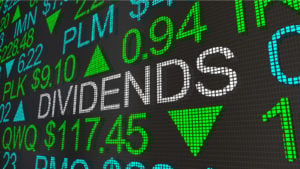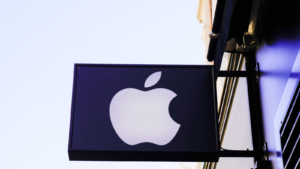An income-rich retirement requires a lot of planning. There are many things that retirees must do in order to ensure that their golden years will be financially comfortable. IRAs, a 401k, HSAs, annuities, pensions, current earnings, and expected age at retirement are just a few of the items to consider. However, it all comes down to picking smart stocks, for those in the investing game.
Investors have a lot to think about to be sure. But one of the best market strategies is to start early and identify dependable stocks that can withstand downturns. Generally, that means companies that provide investors with dividends, that help contribute income to one’s portfolio during difficult times for capital appreciation.
Those dividends also offer a dual benefit. They can be taken directly as income, or be reinvested into new shares which can see capital appreciation over time (and provide even more dividends). All in all, dividend investing is a great strategy to begin at any age. Although, the earlier one starts, the more said dividend can compound over time.
Here are seven smart stocks to buy for investors looking to build out an income-rich retirement.
| VFC | VF Corp. | $27.42 |
| ENB | Enbridge | $39.05 |
| TNC | Tennant | $58.27 |
| SON | Sonoco | $63.27 |
| DCI | Donaldson | $56.07 |
| AAPL | Apple | $114.80 |
| BRK.B | Berkshire Hathaway | $289.88 |
VF Corp. (VFC)

Starting our list of smart stocks income investors may want to consider is VF Corp. (NYSE:VFC). This company probably won’t ring too many bells for readers. The company’s name is rather non-descript unless you’re familiar with it, and its business is not a household name. But VF Corp. is actually one of the world’s largest apparel and footwear firms, with multiple household brand names within its portfolio. These names include Vans, Dickies, Timberland, Supreme, and The North Face, among others.
Indeed, VF Corp. is certainly worth considering for the purpose of generating retirement income. That’s because VFC stock provides a dividend yield of around 7%. In the world of income investing, that’s very high.
That yield is as high as it is because VFC share prices have declined significantly in 2022, falling from $73 to just $27. The company also reduced its 2023 outlook in late-September as macroeconomic concerns continued to mount.
However, VF Corp. also expects compound annual revenue growth in the mid-to-high single digits through the fiscal year 2027. Buy in now, reinvest those dividends at lower share prices, and let compounding work its magic.
Enbridge (ENB)

One of the smart stocks every long-term income investor should own is Enbridge (NYSE:ENB). This company operates in the pipeline transport business. That makes it very different than VF Corp in terms of industry. However, both firms offer a dividend yielding more than 7%. In Enbridge’s case, that dividend yields 7.25%, at the time of writing. That makes both stocks appealing to investors seeking an income-rich retirement.
Enbridge is an Alberta, Canada-based energy firm rooted in a pragmatic approach to a changing energy landscape. Enbridge plans to optimize its existing pipeline throughput, while modernizing its infrastructure. The company is accelerating its investment in natural gas projects, and developing export markets at the same time.
In short, the evolution of energy won’t occur overnight. Pipelines will remain valuable, and their utilization rates will taper very slowly. Accordingly, the long-term narrative for Enbridge is solid despite the threats provided by alternative and renewable energy sources.
That is reflected in the company’s recent earnings. The company’s EBITDA, cash flows, and earnings per share all increased or remained flat through the first half of this year. As a result, the company reaffirmed its 2022 guidance.
Tennant (TNC)

Tennant (NYSE:TNC) is a 150-year-old company that manufactures and sells floor cleaning equipment and supplies. In short, it’s a boring company. Boring is good for income investors. That’s true because mature firms like Tennant that dominate mature niche sectors tend to have less competition. The barriers Tennant has built are tough to break down, and the company’s slow growth makes doing so unappealing.
The result is Tennant provides consistent and stable returns, and should maintain its dominant position for the foreseeable future. So, in order to entice investors, Tennant pays an ultra-reliable dividend. That dividend, while yielding a modest 1.7%, hasn’t been reduced since 1972.
Tennant continues growing at a modest pace. In Q2, revenues reached $280.2 million, representing 4.4% organic growth. Organic growth measures the value of inflows (assets/revenue) versus the value of outflows of assets/revenues. So, Tennant was essentially 4.4% stronger in Q2 2022 than it was a year prior.
Sonoco (SON)

Sonoco (NYSE:SON) is a company that I would certainly classify as one of the smart stocks to own for income investors. This company manufactures industrial and consumer product packaging. Those packaging products have end markets in everything from the automotive sector to construction, appliances, textiles, and more.
As with other stocks on this list, Sonoco’s dividend provides steady, meaningful income. Sonoco declared a 49-cent dividend on Oct. 19 which represented the 390th consecutive quarter in which the company did so. That means the company has been paying a dividend dating back to 1925, and that dividend hasn’t been reduced dating back to 1981.
A strong income investing strategy relies on simple principles. Identify mature firms that have been successfully doing something for a long time, and uses that cash to pay investors. Sonoco, like the other firms listed here, adheres to those principles.
Sonoco’s business will fluctuate. Q2 earnings prove that. Revenues reached $1.91 billion in that period. That was a 38% increase over Q2 2021. Importantly, the company continued to pay dividends despite EPS losses of $3.34 in Q2 of last year.
Donaldson (DCI)

Donaldson (NYSE:DCI) is another stock that represents the antithesis of get-rich-quick investing. The filtration company’s 10-year returns exemplify that notion, providing 5.81% annualized average returns over the last decade. Those returns were modestly higher than the 4.81% from the New York Stock Exchange during that same period.
Importantly, those returns don’t include the effect of Donaldson’s dividend, which currently yields around 1.7%. The company has reduced its dividend since 1996, meaning investors can rely on it. Further, Donaldson’s dividend sports a 5.1% growth rate over the last 5 years.
In short, Donaldson beats the NYSE broadly, includes a dividend that increases that return, and is rapidly increasing that dividend. The firm’s Q2 earnings report states it plainly: “In fiscal 2022, Donaldson eclipsed $3 billion in sales, delivered record profits despite the challenging operating environment, and returned $281 million to our shareholders through dividends and share repurchases.” Expect more of the same moving forward.
Apple (AAPL)

Apple (NASDAQ:AAPL) stock represents a clear departure from the other stocks on this list. It isn’t a very old company relative to those above. It’s a technology company, not a consumer staples play, and it isn’t particularly known for its dividend. All of these factors mean it doesn’t pop up on retirement stock lists often.
Perhaps that should change.
Many readers may already be aware that Apple does provide a dividend. It amounts to just over 23 cents per quarter currently. That amounts to a yield of 0.6% given Apple’s current stock price. That said, the company is growing rapidly and boasts a 9.5% 5-year growth rate. Expect Apple to continue to increase its dividend. One day, it will transition into a mature dividend stock. For now, it’s a great pick that does well in most business cycles.
Apple just reported earnings, which is still being interpreted by the market. Despite lower-than-expected iPhone sales, the company’s top and bottom line both saw beats.
Berkshire Hathaway (BRK.B)

Last on our list of smart stocks to buy for an income-rich retirement is a company that doesn’t pay a dividend at all. That said, Berkshire Hathaway (NYSE:BRK.B) has often been described as the ultimate retirement stock. It is a diversified holdings company run by Warren Buffett who is often considered the greatest investor of all time.
Berkshire Hathaway doesn’t provide a dividend, making it an anomaly on this list. What the company does is invest in primarily American firms that are undervalued. Those firms often provide dividends, which Buffett’s firm reinvests into purchasing additional shares.
The company was known early on to invest in insurance firms, but its current holdings represent a diverse swath of U.S. industry, with Apple dominating its portfolio.
Berkshire Hathaway has provided annualized average returns of 11.39% over the last decade. That resulted in a given sum of capital nearly tripling in value over the period. BRK.B shares have dropped from $300 to around $290 at the time of writing. That’s a reasonable testament to the strength of the company’s strategy, given that broad indexes have fallen more than 20%.
On the date of publication, Alex Sirois did not have (either directly or indirectly) any positions in the securities mentioned in this article. The opinions expressed in this article are those of the writer, subject to the InvestorPlace.com Publishing Guidelines.
